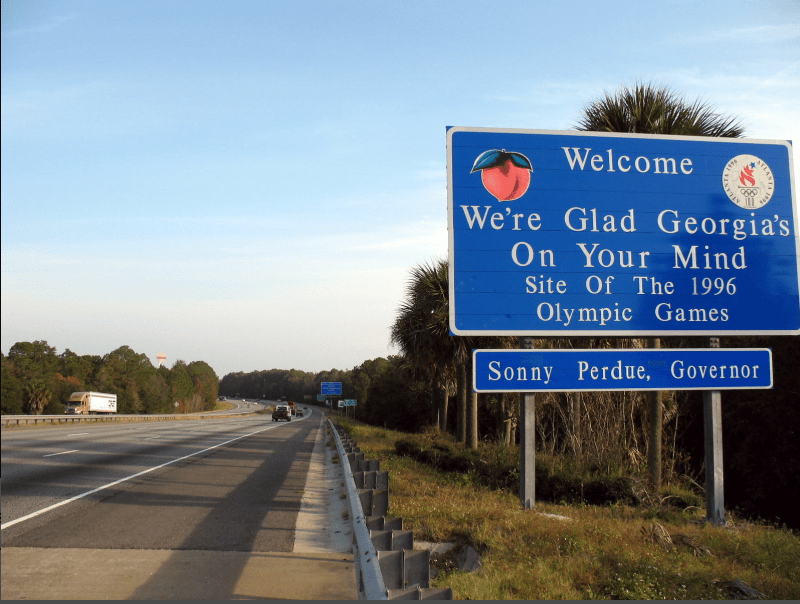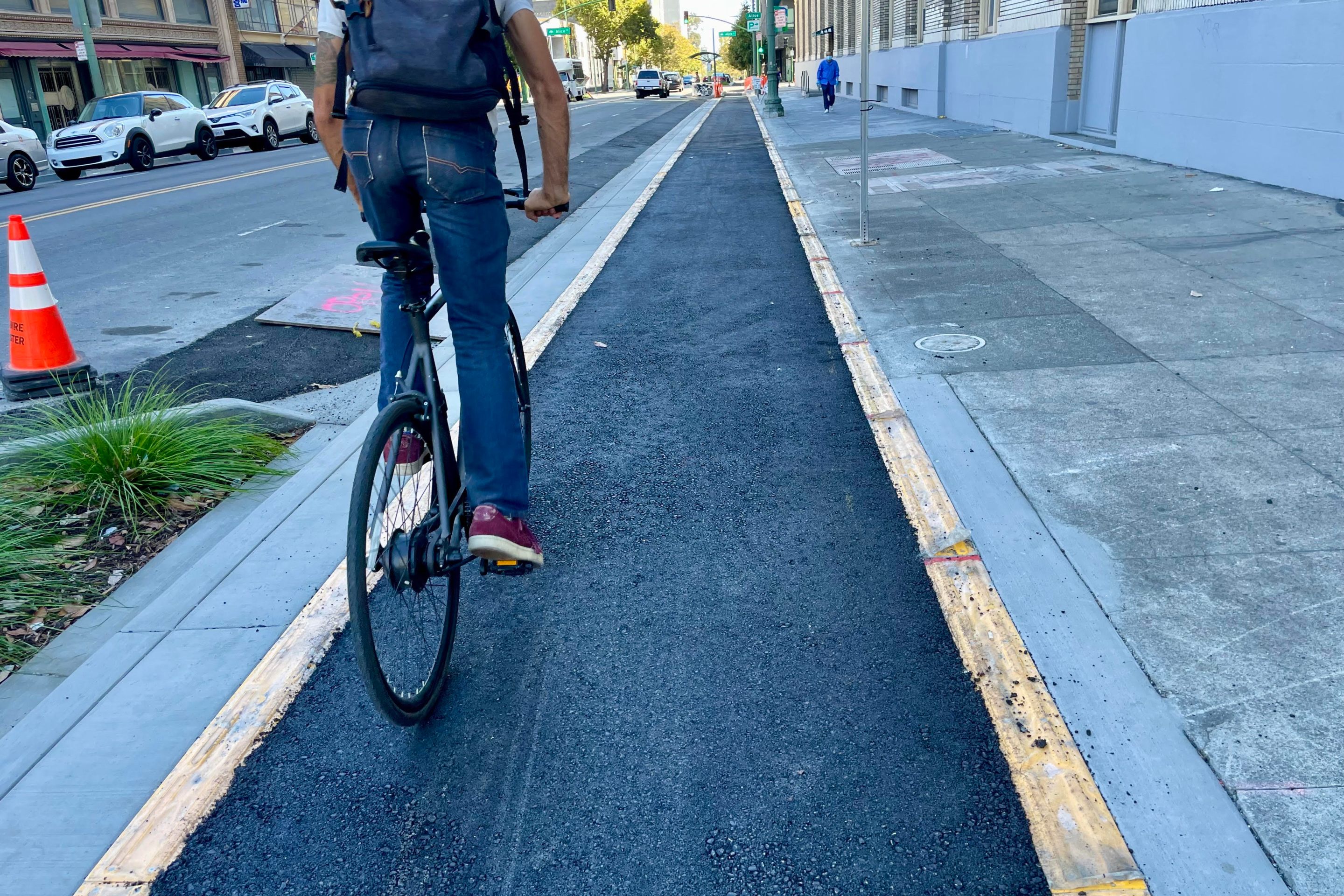Coord invites cities and other curb managers to apply for its Digital Curb Challenge to undertake a free curb management pilot program in 2020. Applications close on Feb. 14. Click here for information.
The Georgia State Senate may finally let transportation leaders use fuel tax dollars for sustainable transportation — and not just endless infrastructure for cars.
State Senator Sally Harrell's bill would make any transportation project eligible for those funds — a measure that could revolutionize the infamously autocentric state, where gas tax revenue can only be used for construction and maintenance of roads and bridges.
The bill proposal comes after Streetsblog reported on the resulting inequity in September — and Curbed Atlanta credited Streetsblog for drawing lawmakers' attention to the issue. The outlet also cited the size of the fuel tax money pot at stake: $1.9 billion every year, according to the Georgia Budget and Policy Institute.
If the resolution fails, that entire amount will be gobbled up by road projects — and like a lot of Southern states, Georgia's motto for car-friendly initiatives seems to be "go big or go home." The Georgia Department of Transportation has plans to use fuel tax dollars to help fund a seven-year, $11-billion project to add lanes to two interstates alone. That outrageous sum is also part of what inspired State Senator Harrell to take action, according to Georgia's News Reporter.
"I kept hearing from constituents that they don’t want these lanes — that they are a multi-billion dollar band-aid for Atlanta’s traffic problems, and everyone knows that they won’t work long term," Harrell said. "Then I realized that we are getting [them] because that’s all [the Georgia Department of Transportation has to offer...We keep building roads, and cars keep coming. Now we are literally choking and it has affected our quality of life. Young people, who do not like to be dependent on cars, are going to stop coming to Atlanta."
One project that could sorely benefit from the constitutional change is Atlanta's Beltline light rail expansion, as Short mentioned in his initial reporting. The Metropolitan Atlanta Rapid Transit Authority is building a 22-mile loop that encircles the city, a route that would be a game-changer for commuters all over the region. But without a cash infusion from the state or the feds, it won't be completed until 2050.
Federal funding is challenging to apply for in the Atlanta metro region's fragmented transportation landscape, since applications require the collaboration of several regional planning bodies and their constituents; voters in the Atlanta suburbs have been loathe to support regional rail projects, out of fear of the desegregating power of transit, Short reports.
Even if Georgia's transit woes won't be solved overnight, changing the way Georgia funds public transportation will be foundational to expanding non-car transportation in the state. The advocates quoted in Streetsblog's story stressed that it might even more impactful than uniting fractured transportation agencies: Sierra Club Rail Committee Chair Tejas Kotak said even a modest increase in state transit funding "would be a sea change.”
The resolution is still in the hopper for discussion, and the legislative session won't resume until February 18th. Georgians who support transportation funding that doesn't center cars: this might be a good time to call your representatives. And non-Georgians: it might be a good time to look up how your state allocates it transportation funding — and make sure your constitution mirrors your priorities for your transportation future.






